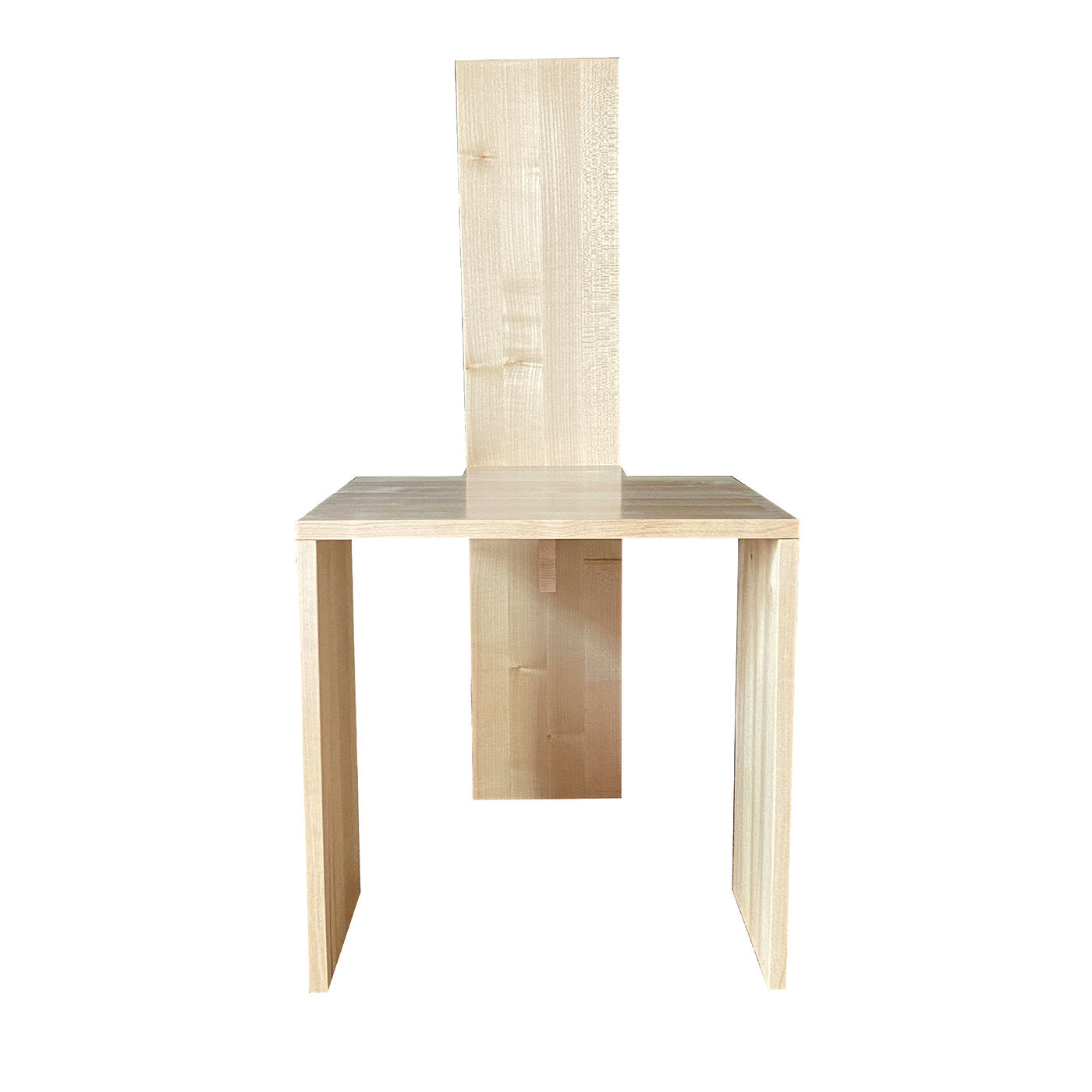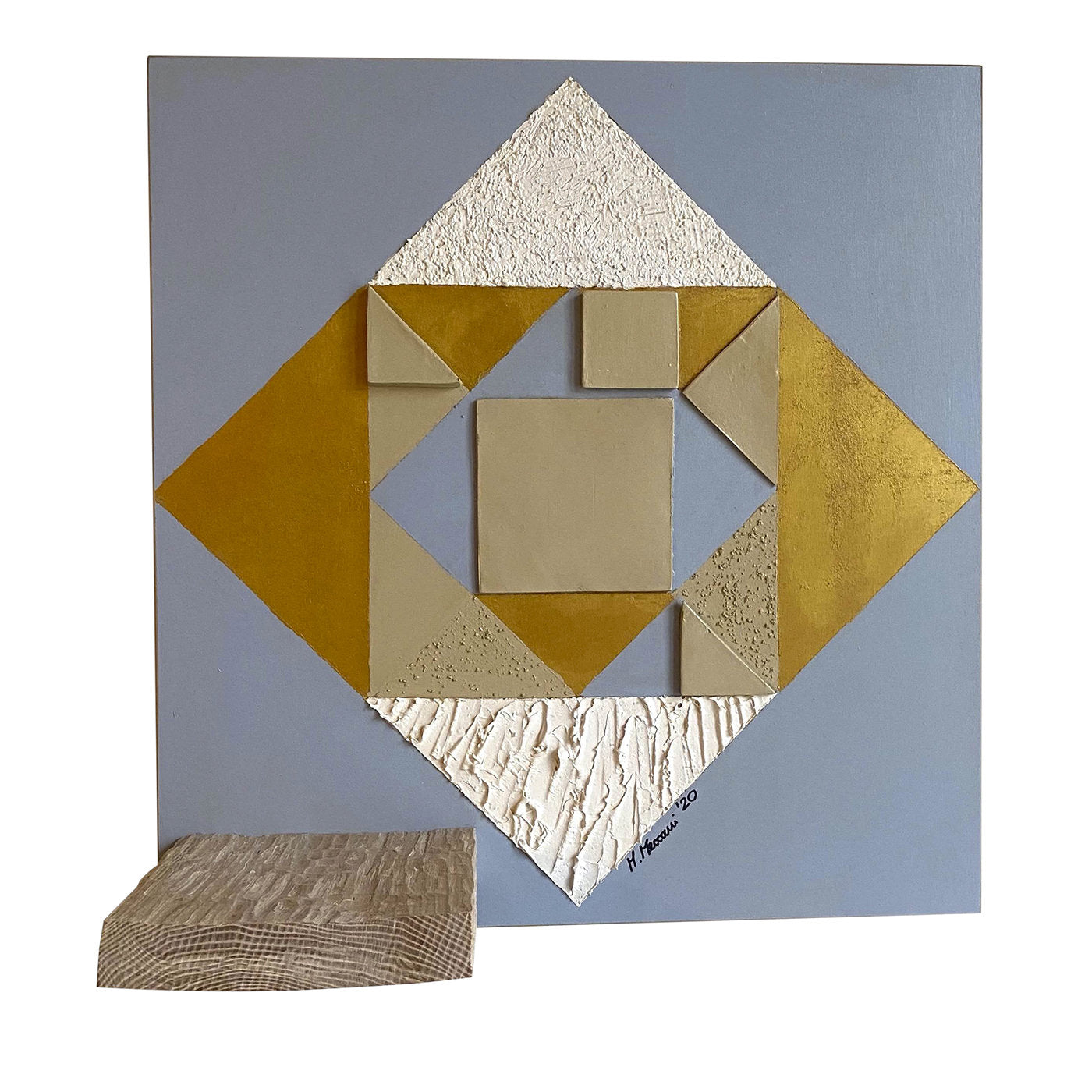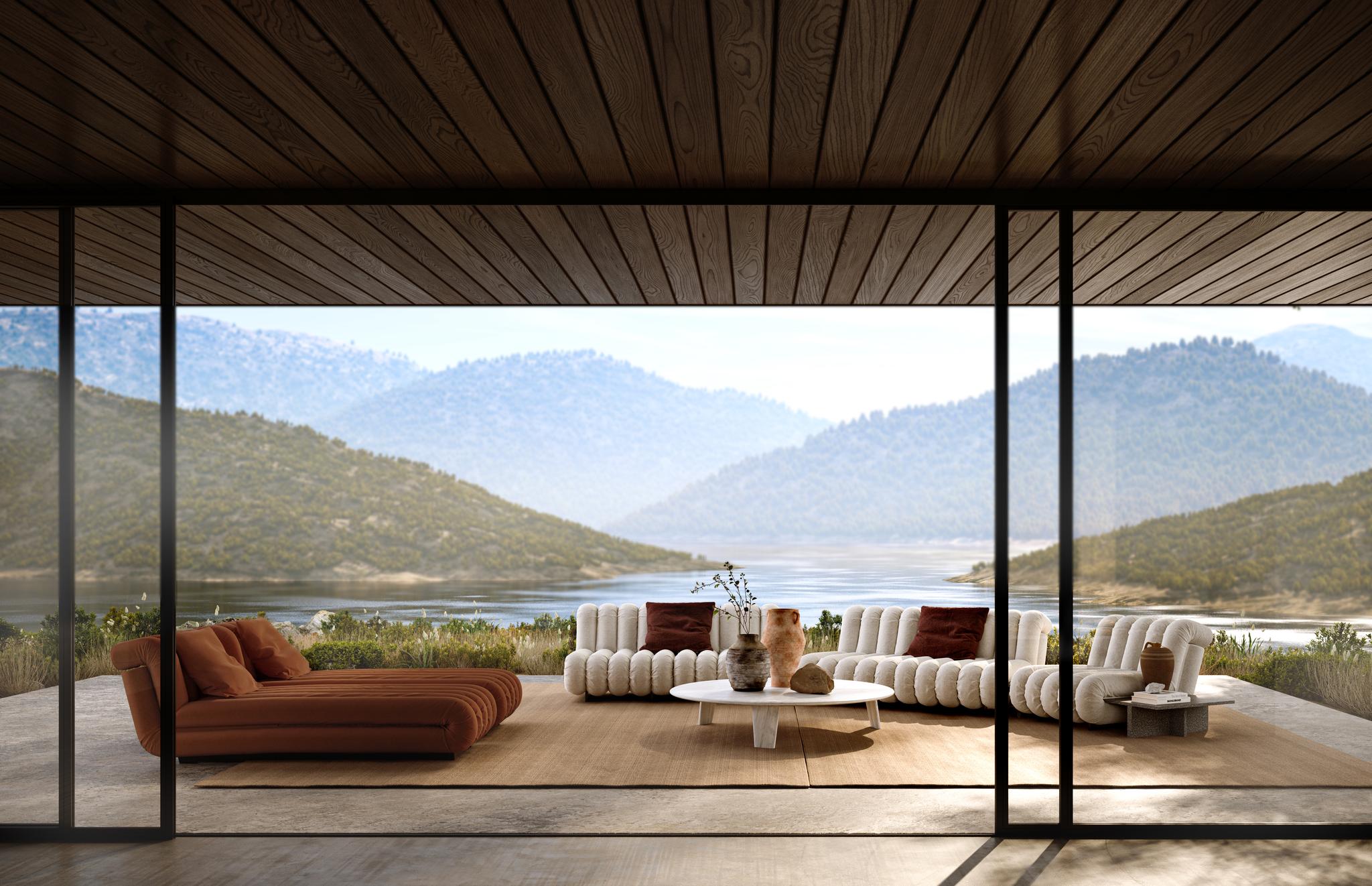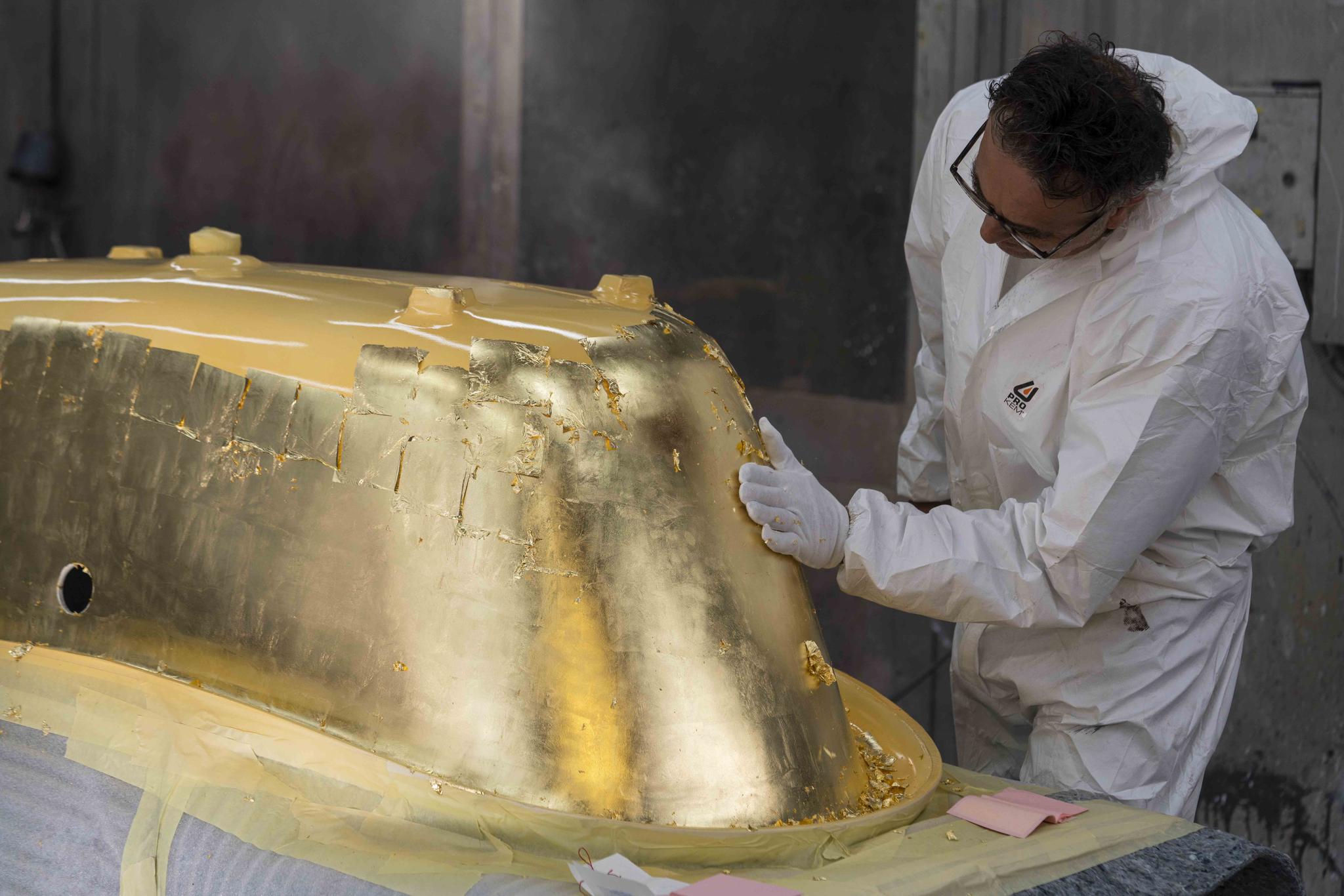
Meccani Design
Cimabue White Maple Chair Limited Edition by Ferdinando Meccani
2.440 EUR
Ships in 7-8 weeks

Meet Meccani Design, Tuscan wood masters for three generations. Roots and traditions are combined with an eagerness to discover and experiment, elevating wood into a contemporary and sophisticated medium.
Meccani Design rises in the 50s from the Tuscan soil surrounded by the extraordinary context of a little village not far from Pisa, seeping medieval charm. The two brothers Marino and Giuseppe Meccani, inspired by the rising artistry for woodworking and the firsts workshops in the area, founded Ditta Meccani, then called Mobilificio Meccani Marino.
With the revolutionary 60s came along that designer and artist Ferdinando Meccani inspired by a new and contemporary wave of artistry starts broadening the company views and transforms the Meccani carpentry into a laboratory for experimenting with modern lines and shapes.
The company with the second generation is named Meccani Arredamenti, and starts forging iconic items such as Erasmo, Madia, Micene, Corinto, all by the hand of Ferdinando Meccani. Studio Meccani today carries on the tradition with new and original pieces, such as the limited edition Cimabue chair and the soulful pieces by Mascia Meccani, such as the Olimpia wall panel. Meccani Design stands out amongst many for its treasuring the territory which they draw from, using natural, non-toxic materials and most importantly solid wood: a warm, scented, alive and renewable, solid resource to produce sustainably.
Get a peek into Meccani's family savoire-faire in our conversation with Pietro Meccani himself, about their relationship with the Tuscan territory, the importance of acting responsibly towards the environment, and the world-renown collaborations they locked over the years.
It all starts from the history of our territory, Tuscany, or rather from our identity - from who we are and what we know.
Meccani Design’s tie to the Tuscan territory and the Pisan style is unquestionably the key to fully understanding its manufacturing process and the essence of its mission. How does Tuscany emerge in your creations?
That connection certainly refers to the past; today, Meccani Design’s ties to Tuscany relate to the cultural and historical influence of Florence, Pisa, and other cities, but also to the relationship with nature, specifically the landscape and sea. After about 70 years, the company still retains its experimental mission. Our high-quality production is buttressed by artistic research whereby wood is combined with other materials - such as stone and marble - and the design process is woven with drawing, ornamentation, and painting. The link with the territory is expressed through a synthesis of local historical and cultural references that, starting from the two-dimensional detailing, transform the piece into an artistic artefact. This is how the relationship with the styles from the past - such as Pisan Romanesque, Florentine Renaissance, and so on - comes into play.
Looking to the future, Meccani Design has always deftly combined its roots and traditions with avant-garde design. In what ways has your creative outlook evolved over the years? How do you manage to maintain a strong identity while reflecting contemporary trends?
Our company constantly explores new solutions; we are eager to promote the “Made in Italy” brand as a culture but also as a national identity that is unrivaled in the artistic and creative fields. It all starts from the history of our territory, Tuscany, or rather from our identity - from who we are and what we know. The Libeccio Collection by Pietro Meccani is meant to express a beautiful, positive relationship between Man and Nature (and it is therefore sustainable) and the source of inspiration is local: the storms in Livorno and along the coast, shaken up by the Libeccio wind, leave trunks and pieces of wood on the beach, the debris resembling sculptures that the artisan can transform into design pieces and accessories. Such is the case also for the Saturno vases or tables designed by Mascia Meccani; starting from the terracotta of Montelupo Fiorentino and weaving through the Romanesque Pisano styles, the Florentine Renaissance, or even the pieces dotting the Tuscany once ruled by the de Medici family and the Lorraine region, we finally arrive at the creation of objects where craftsmanship seamlessly blends with painting.
Meccani Design’s distinctive geometries and silhouettes have been handed down for three generations. Your family crafting tradition holds immeasurable value, how does this relationship translate to your pieces?
It all leads back to Italy. Small family businesses, which survived globalization thanks to the internet, represent an exceptional cultural heritage. As for me, I knew I wanted to continue the family business, so after graduating from high school in the 80s I had the opportunity to work alongside the previous generation of extraordinary craftsmen and designers. This historical memory, despite today’s difficulties, lives on and continuously evolves. For example, the varnishes used for our furniture in the 1980s have now become environmentally friendly, water-based paints.
The terracotta of the Saturn series, the stone of Design and Art, the ceramic of the Totem Lamps Collection: these are just some of the materials Meccani Design includes in its creations. However, Tuscan wood remains the material par excellence in every single design. How are these pieces handcrafted?
Again, I would say that Tuscany is the starting point. In the past, before the general downturn, there were many manufacturing "districts": wood in Cascina, Ponsacco, Poggibonsi, ceramics in Montelupo Fiorentino, artistic mirrors and more in Florence, fashion in Prato, Empoli, Florence. We use our own laboratory to craft our wooden pieces, while for other materials, such as terracotta, we combine the skill of historical Montelupo artisans with our own design and decoration.
The colors used in the decorative panels by Mascia are the perfect example of combining a primitive material (wood) with other elements. What is the thought process behind the selection of these combinations?
Mascia's decorative panels are also an expression of freedom. There is no deliberate rationale in the abstract and geometric designs, just the expression of an emotion in a specific moment.
Reducing the environmental impact and fostering sustainability are very important values for Meccani Design. How do you manage to maintain a high quality while remaining sustainable? What message do you aim to cultivate within your industry?
The environment is indispensable, it concerns us all, the whole planet and, more specifically, the treasures we have here in Italy: not only artistic and historical but also natural. The message is that artisans in Italy who hand down their craft and passion, create affordable, one-off or limited edition pieces with a story respecting the environment, that is, using only certified wood not sourced from primary forests, or other natural materials like terracotta. They strictly apply water-based and environmentally friendly varnishes and use raw materials sourced from the territory. This message is for all of us, for Italy, and for our crafting tradition, so that we can give future generations an opportunity as well. I really appreciate what you are doing at , beyond the economic aspects, as it is important to keep these small artisan businesses alive.
Always a great supporter of craftsmanship, Meccani Design has had the opportunity to undertake various collaborations throughout its long history, showcasing artists like Ettore Sottsass, Ugo La Pietra, Paolo Portoghesi, and many others. What are the most important steps in the collaborative process? How do you manage to capture the creative vision of both parties in equal measure?
The collaboration with world-famous architects and designers such as Sottsass, Graves, Portoghesi, Natalini, Noguchi, La Pietra, Benvenuti, and others started in the mid-1980s. Until that point, the company had only produced furniture designed by Ferdinando Meccani using the skills and craftsmanship of our carpenters. In those years, Ferdinando wanted to add those renowned designers' personal touch to his style so that they would propose their own version of the "Credenza". The result was a splendid catalog in which each artist presented his own vision: not only did they freely interpret the classic "Credenza'' with their extraordinary sensitivity, but also did so with a company specialized in artisan cabinetmaking. So, on the one hand there was the idea and, on the other, the resolve to express that idea through a prototype which was modified based on a direct relationship between artisan and designer, who would visit the workshop and suggest changes that the artisan would execute by hand. The "Liana" bookcase by Ettore Sottsass produced in a limited series at the beginning of the 90s - perhaps the best known product of Meccani Arredamenti - certainly was influenced by the company’s characteristics, for example in the choice of some materials such as wengè. In the 70s, Meccani produced "brown” furniture in walnut, as was customary at the time, and also in wengè, which, instead, was virtually unknown to the public. In a nutshell: tradition and innovation.

Meccani Design
2.440 EUR
Ships in 7-8 weeks

Meccani Design
1.220 EUR
Ships in 1 week

Meccani Design
1.540 EUR
Ships in 1 week

Meccani Design
2.440 EUR
Ships in 1 week

Meccani Design
3.660 EUR
Ships in 1 week

Meccani Design
3.050 EUR
Ships in 7-8 weeks

Meccani Design
2.440 EUR
Ships in 7-8 weeks

Meccani Design
4.880 EUR
Ships in 7-8 weeks

Meccani Design
8.540 EUR
Ships in 7-8 weeks

Born in the historic design district of Brianza, Exteta takes inspiration from the Italian art of …

Devon&Devon is a luxury design and manufacturing company specializing in bespoke interior solution…